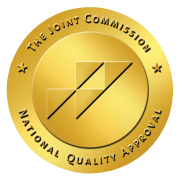A Deeper Dive Into PTSD Causes
Though it is one of our most fundamental aspects of humanity, the mind can be so complex it feels better to compare it to the sea and another body part. It is diverse, undulating, and, at times, turbulent. The stories and experiences that craft our mental complexity can be both beautiful and harrowing. Among the most challenging, yet enlightening, elements of is our understanding of PTSD Causes.
A Deeper Dive Into PTSD Causes
Before diving in, it’s essential to realize that Post-Traumatic Stress Disorder (PTSD) doesn’t only happen to someone who has been in a war, as many believe. In our experience here at Lido Wellness, people can even be surprised that they are struggling with PTSD. The range of trauma is wide and there are no rules for what is significant in each individual’s life. It permeates beyond the battlefields (both metaphorical and real) and touches even the most seemingly benign facets of daily life. So, what exactly are the causes of PTSD?
The List: Unearthing the Causes of PTSD
- Combat Exposure: Though not the only cause of PTSD, the horrors of war are a well-acknowledged cause. Soldiers are subjected to scenes and situations most of us cannot fathom, leading to intense trauma.
- Childhood Physical Abuse & Neglect: Childhood traumas, often leave lasting scars that manifest as PTSD in later life. This goes beyond physical abuse—neglect and emotional abuse also will weave their way into a person’s life in tragic ways.
- Sexual Violence: Regardless of gender, being a victim of sexual assault can be a significant trigger for PTSD.
- Physical Assault: Violent personal attacks, such as muggings, can provoke severe mental distress.
- Accidents: Car crashes, motorcycle accidents, and other accidents can be unexpected sources of intense trauma.
- Natural Disasters: Earthquakes, hurricanes, floods – the raw power of nature, can be a potent PTSD cause.
- Witnessing Death or Serious Injury: The sudden and violent loss of a loved one, even if not directly involved, can be traumatic.
Who Is Prone to PTSD?
Anyone can develop PTSD. It doesn’t matter who you are or how “tough” you believe you are. But there may be life experiences and personal physiologies that play a part. Here are a few things to be aware of if you believe you or someone you know are at risk of PTSD.
- Previous Traumas: PTSD isn’t always a result of a single event. For some, it’s an accumulation of multiple smaller traumas over time.
- Brain Structure: There’s ongoing research suggesting that the structure of certain parts of the brain, particularly the hippocampus, might contribute to susceptibility.
- Family History: Genetics and upbringing play a part. A family history of anxiety and depression can increase risk.
- Personality: It’s not about “strength” or “weakness” but rather how an individual’s personality processes traumatic events.
- Chemistry of the Brain: An imbalance in neurotransmitters might amplify the risk.
Whatever the case, at Lido Wellness, we reject the idea that PTSD is a sign of mental weakness. It isn’t. It’s a natural reaction to intense trauma, and its development depends on myriad factors, many of which are beyond the control of the affected individual.
Jobs with a Higher Propensity for PTSD
When considering PTSD Causes, some jobs are worse than others. There are professions that expose individuals to traumatic experiences more than others.
- Military Personnel: On the frontline, they face the brutal realities of war.
- First Responders: Police, firefighters, and paramedics often arrive at scenes that can be disturbing.
- Healthcare Professionals: Doctors and nurses, especially those in emergency and intensive care units, are regularly exposed to severe injuries and death.
- Journalists: War correspondents and those covering natural disasters witness trauma firsthand.
- Social Workers: Engaging with victims of abuse or those in crisis can be distressing.
Again, there is no specific rule. If you have experienced trauma or been in a traumatic situation that caused stress and difficulty, PTSD is potentially part of the equation. There is no shame in the cause; there is only courage in finding the strength to identify it. And then getting help.
IOP Treatment for PTSD
Unlike inpatient programs where patients live at the facility, at an IOP, people get intensive mental health treatment while living at home. This structure helpful for people who need more thorough treatment but also need to maintain some semblance of their daily routines.
At Lido Wellness Center’s IOP program, we focus on Cognitive Behavioral Therapy (CBT) as a primary treatment for PTSD. CBT helps individuals recognize and reshape their negative thought patterns, empowering them with tools to face their trauma head-on.
Another effective approach is Exposure Therapy. It walks individuals through a controlled re-experience of their traumatic events, diluting the event’s overwhelming power over time. Eye Movement Desensitization and Reprocessing (EMDR) is a powerful tool in this process. Through guided eye movements, EMDR allows patients to process and reframe traumatic memories in a way that minimizes the immediate stress of interacting with their memory.
Group Therapy for PTSD
Therapy isn’t just about individual introspection. The power of community can’t be overlooked. Group therapy sessions within an IOP setting foster connections—people feel less alone. The shared stories, the collective sighs of relief, and the intertwining journeys of recovery often become an anchor in the turbulent sea.
Ready to Seek Help for PTSD? Contact Lido Wellness Center Today
If you or someone you know is struggling with the effects of PTSD, remember that you’re not alone, and there is help available. Lido Wellness Center, located in beautiful Newport Beach in Orange County, specializes in providing intensive outpatient mental health treatment.
Our compassionate team is dedicated to helping individuals regain control of their lives and find healing. We offer evidence-based therapies, including Cognitive Behavioral Therapy (CBT) and Eye Movement Desensitization and Reprocessing (EMDR), tailored to address the unique needs of those dealing with PTSD.
Don’t let PTSD control your life any longer. Take the first step towards recovery by reaching out to Lido Wellness Center today.
Contact us at 949-541-8466 to schedule a consultation or learn more about our programs.




